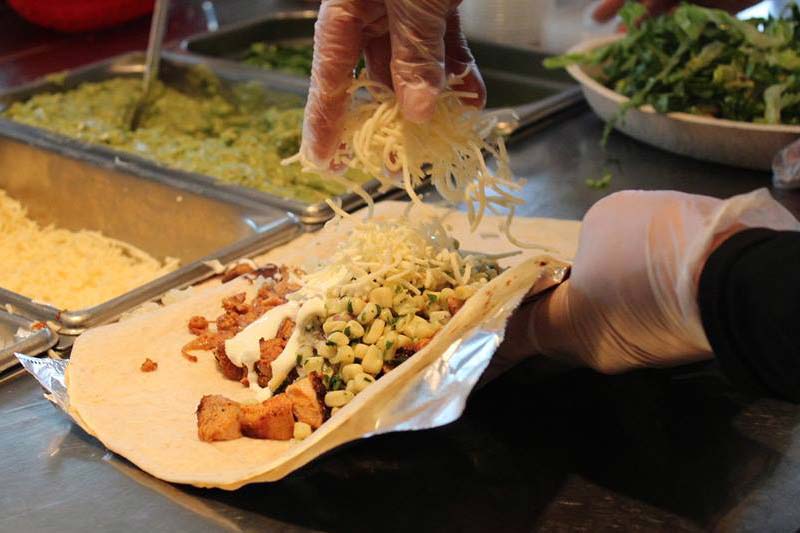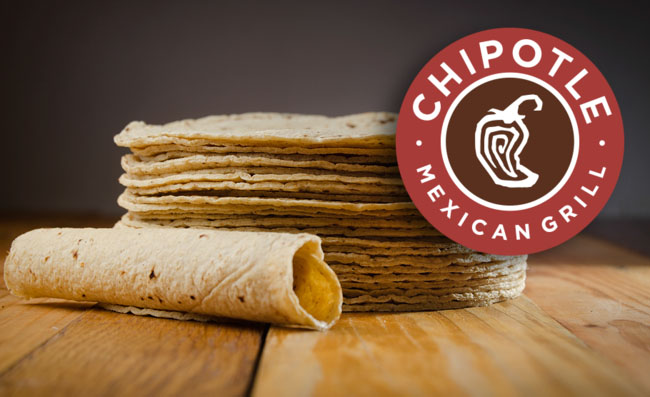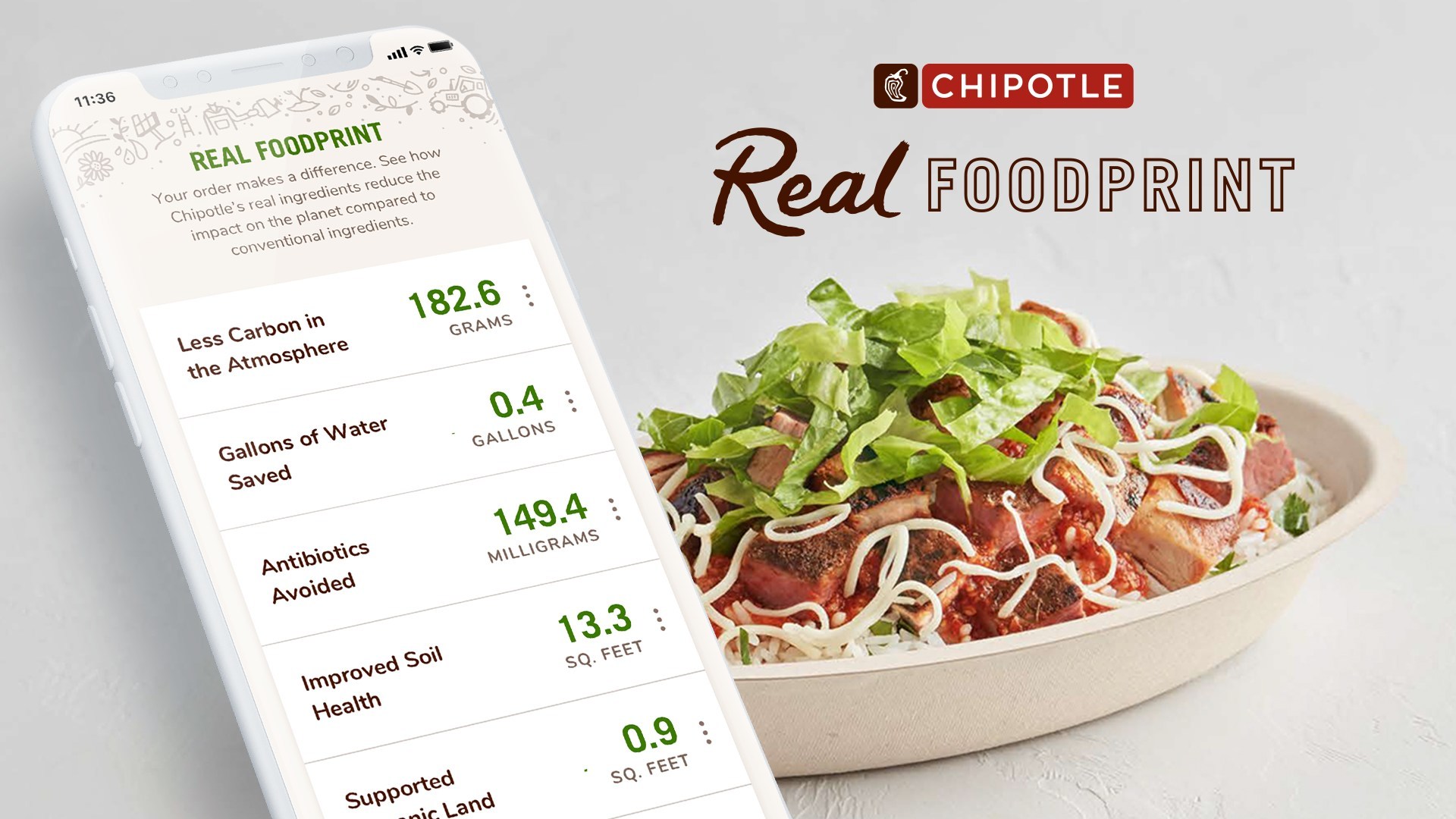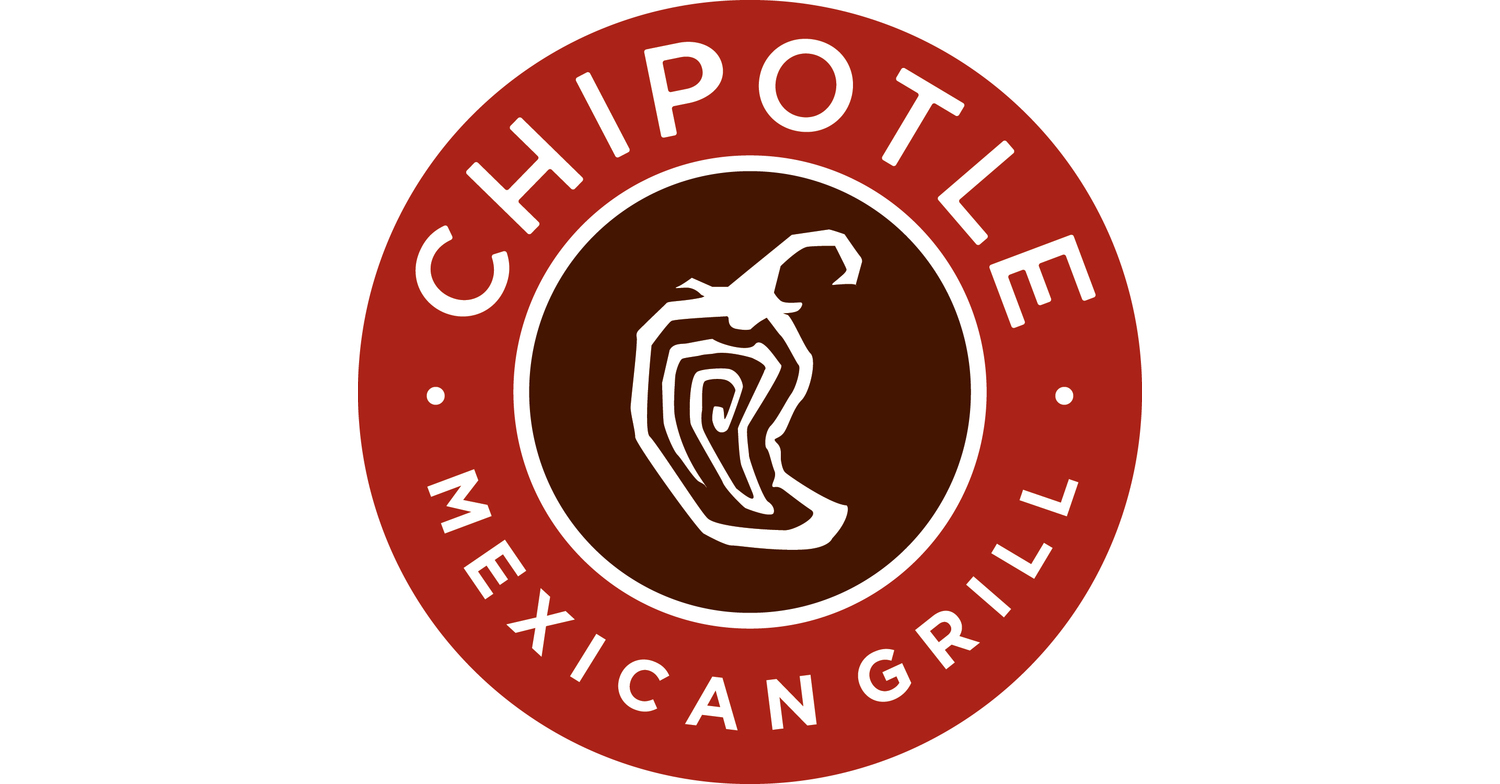Where Does Chipotle Get Their Tortillas? Introduction
Overview of Chipotle and their commitment to sourcing quality ingredients
Chipotle is a well-known fast-casual restaurant chain that is known for its commitment to using high-quality ingredients and promoting sustainable practices. Despite receiving investment from McDonald’s in the early years, Chipotle continued to operate independently and maintain its focus on quality and sustainability. This approach has led to steady growth and expansion for the company.
One of the key pillars of Chipotle’s philosophy is its “Food With Integrity” initiative. This initiative emphasizes the use of responsibly-sourced ingredients and naturally-raised meats. By sourcing high-quality fresh ingredients that meet their strict standards, Chipotle ensures that their customers are served food that is not only delicious but also meets the highest ethical and sustainable practices.
Importance of knowing where Chipotle sources their tortillas
When it comes to Mexican cuisine, tortillas are an essential component of many dishes. For Chipotle, tortillas are no exception. Chipotle takes great care in sourcing their tortillas from trusted suppliers who share their commitment to quality and sustainability.
Knowing where Chipotle sources their tortillas is important for several reasons. Firstly, it ensures transparency in the supply chain and the ability to trace the origin of the ingredients used. This allows customers to make informed choices about the food they consume and supports Chipotle’s goal of promoting ethical and responsible sourcing practices.
Furthermore, by sourcing tortillas from trusted suppliers, Chipotle can ensure consistent quality across all their locations. This means that customers can expect the same delicious and freshly-made tortillas every time they visit a Chipotle restaurant.
In conclusion, Chipotle’s commitment to sourcing quality ingredients, including tortillas, sets them apart from other fast-casual dining options. By prioritizing responsible sourcing practices, Chipotle provides a unique dining experience for its diverse customer base. [1][2][3][4]
Sourcing Wheat Flour
Key information about the wheat flour used in Chipotle’s tortillas
Chipotle takes great pride in the selection of wheat flour used in their tortillas. Here are some key details about the wheat flour they use:
- Chipotle’s wheat flour is specifically chosen for its high quality and nutritional value.
- The wheat flour is made from whole grains, ensuring that the tortillas are a good source of fiber.
- It is important to note that Chipotle’s wheat flour does not contain any artificial preservatives or additives.
- The flour used is sourced from trusted suppliers who share Chipotle’s commitment to sustainable and responsible farming practices.
- Chipotle’s dedication to using whole wheat flour reflects their focus on providing healthier food options to their customers.
Quality standards for selecting wheat flour suppliers
Chipotle has strict standards when it comes to selecting wheat flour suppliers. These standards ensure that the flour used in their tortillas meets their criteria for quality and sustainability. Here are some of the quality standards Chipotle considers:
| Quality Standards | Explanation |
|---|---|
| Organic Certification | The wheat flour suppliers must have organic certification, indicating that the grains are grown without the use of synthetic pesticides or fertilizers. |
| Sustainable Farming Practices | Chipotle selects suppliers who follow sustainable farming practices, such as crop rotation and soil conservation, to protect the environment. |
| Traceability | Chipotle requires suppliers to provide detailed information about the origin of the wheat used in the flour, ensuring transparency in the supply chain. |
| Consistent Quality | The wheat flour must consistently meet Chipotle’s standards for taste, texture, and nutritional value, ensuring that customers enjoy the same great tortillas at every location. |
By carefully selecting wheat flour suppliers who meet these standards, Chipotle ensures that their tortillas are not only delicious but also made from high-quality, responsibly-sourced ingredients. This commitment to quality is what sets Chipotle apart from other fast-casual dining options. [5][6][7][8]



Wheat Flour Ingredients
Explanation of the four ingredients used in Chipotle’s flour tortillas
Chipotle takes pride in their flour tortillas made with just four simple ingredients. Here’s a breakdown of each ingredient and its role in creating the perfect tortilla:
- Wheat Flour: Chipotle carefully selects high-quality wheat flour for its tortillas. This flour is made from whole grains, ensuring that the tortillas are a good source of fiber. It is free from artificial preservatives or additives, aligning with Chipotle’s commitment to providing healthier food options.
- Water: Water is an essential component in the tortilla-making process. It helps bind the ingredients together and allows the dough to be easily shaped and rolled into tortillas.
- Canola Oil: Canola oil adds moisture and tenderness to the tortillas. It also helps enhance the flavor and texture of the finished product. Chipotle uses canola oil that is sourced responsibly, ensuring sustainable and responsible farming practices.
- Salt: Salt is a key ingredient that not only adds flavor but also helps with dough development. It regulates the fermentation process, giving the tortillas the right balance of taste and texture.
Role of water, canola oil, and salt in the tortilla-making process
The combination of water, canola oil, and salt is crucial in the tortilla-making process. Here’s how each ingredient contributes:
- Water: Water hydrates the flour, allowing it to form gluten, which gives the tortillas their structure and elasticity. It also makes the dough easier to work with and roll out.
- Canola Oil: Canola oil adds moisture to the dough, preventing it from becoming dry and brittle. It also helps create a soft and pliable texture in the tortillas.
- Salt: Salt not only enhances the flavor of the tortillas but also strengthens the gluten structure. It provides balance and brings out the natural taste of the wheat flour.
By using a precise combination of these ingredients, Chipotle ensures that their tortillas are consistently delicious and of high quality across all locations. The focus on simplicity and natural ingredients sets Chipotle apart, providing customers with a wholesome and enjoyable dining experience. [9][10][11][12]



Canola Oil Selection
Using high-quality ingredients is a top priority for Chipotle, and this extends to their choice of canola oil. Here are some considerations that go into selecting the right canola oil for their tortillas:
Considerations for choosing the right canola oil for Chipotle’s tortillas
Sourced Responsibly: Chipotle ensures that the canola oil they use is sourced responsibly. They work with trusted suppliers who follow sustainable farming practices, minimizing the environmental impact.
High-Quality Standards: Chipotle has stringent quality standards when it comes to their ingredients, and canola oil is no exception. They select oil that meets their high standards for taste, purity, and freshness. This ensures that the canola oil adds the perfect flavor and texture to their tortillas.
Nutrition Benefits: Canola oil is chosen for its health benefits. It is low in saturated fat and high in healthy fats like omega-3 fatty acids. By using canola oil, Chipotle provides a healthier option without compromising on taste or quality.
Ethical sourcing and sustainability practices
Chipotle is committed to making ethical choices at all times, and this includes sourcing ingredients sustainably. By working with responsible suppliers and encouraging sustainable farming practices, Chipotle aims to reduce their environmental footprint.
They also prioritize the well-being of the farmers and communities involved in the production of their ingredients. By supporting sustainable agriculture and fair trade practices, Chipotle contributes to the livelihoods of farmers while preserving the Earth’s resources.
In conclusion, Chipotle’s careful selection of canola oil is guided by their commitment to providing high-quality, flavorful, and sustainable tortillas. They prioritize sourcing responsibly and working with suppliers who share their values. By making conscious choices, Chipotle sets a standard for ethical practices in the food industry. [13][14][15][16]



Salt as a Key Ingredient
Quality and sourcing standards for the salt used in Chipotle’s tortillas
The selection of salt is just as important to Chipotle as the other ingredients in their tortillas. They have strict quality and sourcing standards in place to ensure that only the best salt is used. Here are some factors that Chipotle considers when choosing their salt:
- Purity: Chipotle insists on using pure salt without any additives. This ensures that the flavor of the salt is clean and enhances the taste of the tortillas.
- Sourcing: Chipotle partners with trusted suppliers who follow ethical and sustainable practices. They source salt from reliable sources to guarantee its quality and avoid any potential contaminants.
- Mineral Content: The mineral content of the salt is also taken into account. Chipotle aims to use salt with a balanced mineral profile that adds depth and complexity to the flavor of the tortillas.
Impact of salt on the flavor and texture of the tortillas
Salt plays a crucial role in enhancing the flavor and texture of Chipotle’s tortillas. Here’s how it contributes to the overall taste experience:
- Flavor Enhancement: Salt helps to bring out the natural flavors of the other ingredients in the tortillas. It adds a savory element that complements the fillings and spices, creating a well-balanced and flavorful bite.
- Texture Improvement: Salt also affects the texture of the tortillas. It helps to enhance the dough’s elasticity, making the tortillas soft and pliable. This ensures a pleasant mouthfeel and allows for easy folding or rolling.
- Preservation: Salt acts as a natural preservative, helping to extend the shelf life of the tortillas without the need for artificial additives. This ensures that the tortillas maintain their freshness and quality.
In conclusion, Chipotle’s careful selection of salt is driven by their commitment to delivering the best possible tortillas. They prioritize purity, sourcing from reputable suppliers, and consider the impact of salt on flavor and texture. By maintaining high standards for their ingredients, Chipotle ensures that their tortillas meet their customers’ expectations consistently. [17][18][19][20]



Local Sourcing
Chipotle’s commitment to supporting local farmers and suppliers
Chipotle Mexican Grill has made a dedicated effort to source their ingredients locally and build deeper relationships with farmers. In 2020 alone, they sourced 31 million pounds of produce from 54 unique local farmers, comprising 11% of their overall produce. By sourcing locally, Chipotle is able to better ensure sustainability goals by supporting farmers in their farming practices.
Benefits of using local ingredients in their tortillas
One of the key ingredients in Chipotle’s tortillas is salt. They have strict quality and sourcing standards for the salt used in their tortillas to ensure the best flavor and texture. Here’s why using locally sourced salt is important:
- Fresher Ingredients: Sourcing salt from local suppliers allows Chipotle to use fresher ingredients in their tortillas. This results in a better overall taste and quality.
- Reduced Carbon Footprint: By sourcing ingredients locally, Chipotle reduces the transportation distance, which in turn reduces the carbon footprint associated with the sourcing process.
- Supporting Local Economy: By sourcing from local farmers and suppliers, Chipotle contributes to the local economy by supporting small businesses and fostering economic growth.
- Enhanced Flavor: Locally sourced ingredients tend to be fresher and higher in quality, leading to a more flavorful and enjoyable taste experience for customers.
Overall, Chipotle’s commitment to local sourcing reflects their dedication to sustainability and supporting local communities. By sourcing locally and building relationships with farmers, they are able to provide customers with high-quality ingredients while also making a positive impact on the environment and local economy. [21][22][23][24]



Ensuring Quality and Consistency
Quality control measures in place to ensure consistent taste and texture
Chipotle Mexican Grill has implemented rigorous quality control measures to maintain consistent taste and texture across all their flour tortillas. These measures include:
- Ingredient Verification: Chipotle carefully selects suppliers that meet their high standards for quality ingredients. The wheat flour, water, canola oil, and salt used in their tortillas undergo thorough verification processes to ensure they meet Chipotle’s specifications for taste and texture.
- Cooking Techniques: Chipotle follows classic cooking techniques to create their tortillas. These techniques have been refined over time to achieve a consistent and delicious end product.
- Standardized Recipes: Chipotle has developed and documented standardized recipes for their tortillas. These recipes outline the exact quantities and preparation methods to be followed, ensuring consistent results across all their restaurants.
Testing and inspections for the wheat flour tortillas
Chipotle takes the quality of their wheat flour tortillas seriously. Extensive testing and inspections are conducted to maintain the highest standards. These processes include:
| Testing Method | Purpose |
|---|---|
| Visual Inspection | Checking for any visual defects or irregularities in the tortillas, such as uneven thickness or tears. |
| Taste Testing | Evaluating the flavor and texture of sample tortillas to ensure they meet Chipotle’s standards. |
| Texture Analysis | Using specialized equipment to measure the texture of the tortillas, ensuring they have the desired softness and pliability. |
| Microbiological Testing | Testing samples for the presence of harmful bacteria or contaminants to ensure food safety. |
These testing and inspection procedures help Chipotle maintain a consistent and high-quality product that customers can enjoy with confidence. [25][26][27][28]



Sustainable Practices
Chipotle’s efforts towards sustainability in their ingredient sourcing
Chipotle Mexican Grill is committed to sustainable practices in their ingredient sourcing. They prioritize working with farms that practice sustainable agriculture, which has several benefits:
- Organic farming: Chipotle sources ingredients from farms that follow organic farming practices. This means that the food they serve is free from synthetic pesticides, genetically modified organisms (GMOs), and artificial additives.
- Water conservation: Chipotle partners with farms that have sustainable agriculture practices, including greywater reduction. These practices help save water, which is an essential resource.
- Improved soil health: By sourcing ingredients from farms that practice sustainable agriculture, such as crop rotation, Chipotle contributes to improving soil health. This helps ensure the long-term viability of farming and reduces the need for synthetic fertilizers.
Chipotle’s commitment to sustainable ingredient sourcing not only benefits the environment but also ensures that customers are consuming high-quality, responsibly sourced food.
Environmental impact of wheat flour production
The production of wheat flour, a key ingredient in Chipotle’s flour tortillas, can have environmental implications. Here are some factors to consider:
| Environmental Impact | Description |
|---|---|
| Land use | Wheat cultivation requires significant land area. Sustainable farming practices can help minimize the conversion of natural habitats into agricultural land. |
| Water usage | Growing wheat requires substantial water resources. Sustainable agriculture practices, like water-efficient irrigation systems, can help minimize water usage and promote water conservation. |
| Carbon emissions | The production, processing, and transportation of wheat can contribute to greenhouse gas emissions. Sustainable practices, such as optimizing transportation routes and adopting energy-efficient technologies, can help reduce carbon emissions. |
| Biodiversity | Intensive agricultural practices, including wheat farming, can impact biodiversity by reducing habitat availability for plants and animals. Sustainable farming methods that preserve natural ecosystems can help protect biodiversity. |
By being aware of the environmental impact of wheat flour production, Chipotle can work towards implementing sustainable practices and minimizing their ecological footprint.
Overall, Chipotle’s commitment to sustainability extends beyond their ingredient sourcing. They employ quality control measures to ensure consistent taste and texture in their flour tortillas and have established rigorous testing and inspections for their product. By prioritizing sustainable practices and being mindful of the environmental impact of their operations, Chipotle continues to foster a better world through their food and industry revolution. [29][30][31][32]
Sustainable Practices
Chipotle’s efforts towards sustainability in their ingredient sourcing
Chipotle Mexican Grill is committed to sustainable practices in their ingredient sourcing. They prioritize working with farms that practice sustainable agriculture, which has several benefits:
- Organic farming: Chipotle sources ingredients from farms that follow organic farming practices. This means that the food they serve is free from synthetic pesticides, genetically modified organisms (GMOs), and artificial additives.
- Water conservation: Chipotle partners with farms that have sustainable agriculture practices, including greywater reduction. These practices help save water, which is an essential resource.
- Improved soil health: By sourcing ingredients from farms that practice sustainable agriculture, such as crop rotation, Chipotle contributes to improving soil health. This helps ensure the long-term viability of farming and reduces the need for synthetic fertilizers.
Chipotle’s commitment to sustainable ingredient sourcing not only benefits the environment but also ensures that customers are consuming high-quality, responsibly sourced food.
Environmental impact of wheat flour production
The production of wheat flour, a key ingredient in Chipotle’s flour tortillas, can have environmental implications. Here are some factors to consider:
| Environmental Impact | Description |
|---|---|
| Land use | Wheat cultivation requires significant land area. Sustainable farming practices can help minimize the conversion of natural habitats into agricultural land. |
| Water usage | Growing wheat requires substantial water resources. Sustainable agriculture practices, like water-efficient irrigation systems, can help minimize water usage and promote water conservation. |
| Carbon emissions | The production, processing, and transportation of wheat can contribute to greenhouse gas emissions. Sustainable practices, such as optimizing transportation routes and adopting energy-efficient technologies, can help reduce carbon emissions. |
| Biodiversity | Intensive agricultural practices, including wheat farming, can impact biodiversity by reducing habitat availability for plants and animals. Sustainable farming methods that preserve natural ecosystems can help protect biodiversity. |
By being aware of the environmental impact of wheat flour production, Chipotle can work towards implementing sustainable practices and minimizing their ecological footprint.
Overall, Chipotle’s commitment to sustainability extends beyond their ingredient sourcing. They employ quality control measures to ensure consistent taste and texture in their flour tortillas and have established rigorous testing and inspections for their product. By prioritizing sustainable practices and being mindful of the environmental impact of their operations, Chipotle continues to foster a better world through their food and industry revolution.
Conclusion
Where Does Chipotle Get Their Tortillas: Sourcing Chipotle’s Ingredients
Q: Where does Chipotle source their tortillas?
A: Chipotle Mexican Grill takes pride in sourcing high-quality ingredients for their food, including their tortillas. The company sources their tortillas primarily from local and regional suppliers.
Q: Are the tortillas made in-house at Chipotle?
A: While Chipotle is known for making many of their ingredients in-house, such as their guacamole and salsas, their tortillas are not made on-site. Instead, they are sourced from trusted suppliers who follow Chipotle’s strict quality and sourcing standards.
Q: How does Chipotle ensure the quality of their tortillas?
A: Chipotle has established partnerships with suppliers who share their commitment to responsibly-sourced, high-quality ingredients. These suppliers follow rigorous standards set by Chipotle, which include using non-GMO corn and traditional tortilla-making techniques.
Q: Do Chipotle’s tortillas contain any additives or preservatives?
A: Chipotle believes in using simple, clean ingredients in their food. Their tortillas are made with just four basic ingredients: flour, water, oil, and a pinch of salt. They are free from any additives or preservatives.
Q: Are Chipotle’s tortillas gluten-free?
A: Chipotle’s tortillas are made from flour, which contains gluten. Therefore, their tortillas are not gluten-free. However, Chipotle offers other gluten-free options for customers with dietary restrictions, such as their burrito bowl or salad bowl.
Q: Can customers request a specific type of tortilla at Chipotle?
A: Yes, customers have the option to choose between two types of tortillas at Chipotle: flour tortilla or corn tortilla. The flour tortilla is the default option, but you can request a corn tortilla instead if you prefer.
Q: Are there any vegan options available in terms of tortillas at Chipotle?
A: Both the flour tortillas and corn tortillas offered at Chipotle are vegan-friendly. They do not contain any animal-derived ingredients, making them suitable for individuals following a vegan or plant-based diet.
Q: Is there an additional cost for choosing corn tortillas instead of flour tortillas?
A: Chipotle does not charge extra for choosing corn tortillas over flour tortillas. The choice between the two types of tortillas is simply a matter of personal preference and dietary needs.
Q: Are the tortillas at Chipotle made to order?
A: Yes, when you order a burrito or a quesadilla at Chipotle, the tortilla is heated on the grill before being filled with your choice of ingredients. This ensures that the tortilla is warm and fresh when you receive your order.
In summary, Chipotle sources their tortillas from trusted suppliers who meet their strict quality and sourcing standards. The tortillas are made with simple, clean ingredients and do not contain any additives or preservatives. Customers have the option to choose between flour and corn tortillas, and both options are vegan-friendly. The tortillas are heated on the grill before being filled with ingredients, ensuring a warm and fresh experience for customers.



Hey there! If you’re a fan of authentic Mexican cuisine, you’re in for a treat with Humberto Cruz at pointcafeny.com. They take immense pride in serving their customers with home-cooked, genuine Mexican dishes crafted with the finest ingredients. From flavorful salsa to mouthwatering tamales and enchiladas, they offer an experience that brings the taste of family food from back home right to your table. Don’t forget to check out their tempting Daily Specials for a delightful culinary adventure!
